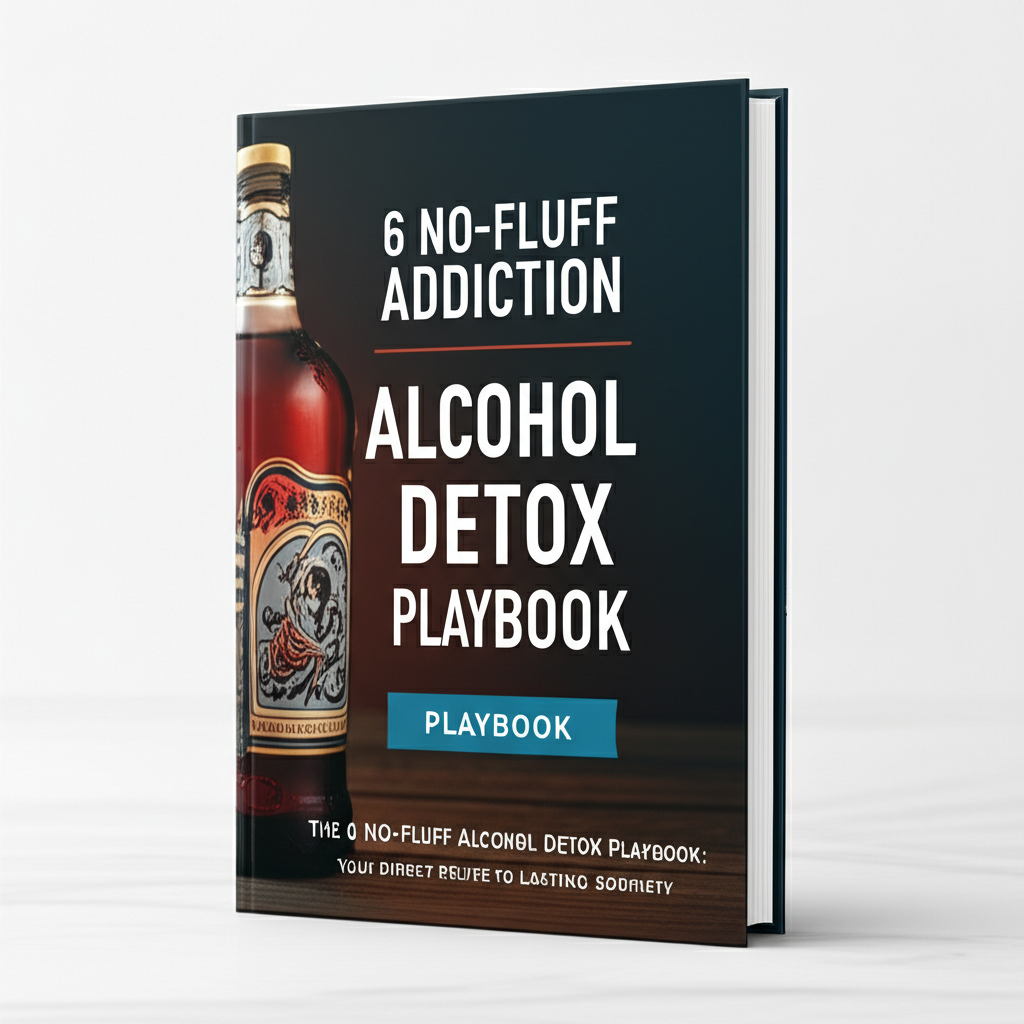The decision to stop drinking alcohol is a monumental step, a courageous leap towards a healthier, more fulfilling life. But once that decision is made, a common question arises: "How do I actually do it? Can I detox quickly?" The internet is rife with promises of fast fixes and easy solutions, but when it comes to alcohol addiction and detox, "quick" can sometimes come with serious risks.
This article will explore three approaches to alcohol detox that, in specific contexts, can be considered "quick" – either in their initial setup or the acute management of withdrawal. However, it’s absolutely crucial to understand that "quick" never means "risk-free" or "unsupervised." For anyone struggling with alcohol dependence, the safest and most effective path always begins with a conversation with a healthcare professional. We’ll demystify the detox process, highlight when these "quick" methods might be applicable, and, most importantly, underscore the non-negotiable role of medical guidance in ensuring your safety and setting you up for lasting sobriety.
Understanding Alcohol Detox: What It Is and Why Safety Comes First
Before diving into specific examples, let’s clarify what alcohol detox entails and why it’s a process that demands respect and caution.
The Detox Process Explained
Alcohol detox, short for detoxification, is the physiological process of clearing alcohol and its toxic byproducts from your body. When someone has developed a physical dependence on alcohol, their body becomes accustomed to its presence. Removing alcohol abruptly can trigger a range of uncomfortable and potentially dangerous symptoms known as alcohol withdrawal syndrome (AWS).
The severity of AWS varies greatly depending on factors like:
- The amount and duration of alcohol consumption.
- Individual health conditions.
- History of previous withdrawals.
- Age and gender.
The primary goal of any detox method is to safely manage these withdrawal symptoms, stabilize the individual, and prepare them for long-term recovery.
The Critical Importance of Medical Supervision
This cannot be stressed enough: unsupervised alcohol detox, especially for moderate to severe dependence, can be life-threatening. Alcohol withdrawal isn’t just uncomfortable; it can lead to severe medical complications, including:
- Delirium Tremens (DTs): A severe form of withdrawal characterized by confusion, rapid heart rate, high blood pressure, fever, hallucinations, and agitation. DTs can be fatal without immediate medical intervention.
- Seizures: Withdrawal seizures can occur as the brain’s activity rapidly increases without the suppressive effects of alcohol.
- Cardiac Complications: Irregular heartbeats, heart attacks.
- Severe Dehydration and Electrolyte Imbalances: Leading to kidney problems and other systemic issues.
- Psychiatric Disturbances: Extreme anxiety, paranoia, and suicidal ideation.
A healthcare professional can assess your specific situation, predict potential risks, and recommend the most appropriate and safest detox environment. They can also prescribe medications (like benzodiazepines) that significantly reduce the severity of withdrawal symptoms and prevent life-threatening complications.
When is "Quick" Detox an Option? (And When It’s Not)
The concept of a "quick" alcohol detox is largely dependent on the individual’s level of alcohol dependence and the severity of their potential withdrawal symptoms.
"Quick" detox might be considered in these scenarios:
- Very Mild Dependence: For individuals who drink moderately but have decided to stop, and experience only very mild, manageable symptoms like slight anxiety, mild headaches, or trouble sleeping. Even then, a doctor’s advice is recommended.
- As an Initial Step: For those with mild to moderate dependence, a "quick" initial assessment or an outpatient program can kickstart the process, but always under medical guidance.
- In a Medical Emergency: For severe cases, "quick" might refer to the rapid initiation of medically supervised inpatient detox to stabilize life-threatening symptoms.
"Quick" detox is NOT an option for:
- Moderate to Severe Alcohol Dependence: If you drink heavily and regularly, have experienced withdrawal symptoms before, or have underlying health conditions, attempting self-detox at home can be extremely dangerous.
- History of Severe Withdrawal Symptoms: If you’ve had seizures, DTs, or hallucinations during past attempts to stop drinking, immediate medical supervision is essential.
- Co-occurring Mental Health Conditions: Conditions like severe depression, anxiety disorders, or bipolar disorder can complicate detox and require integrated care.
- Lack of a Support System: Going through withdrawal alone is never advisable.
Always remember: the perceived "quickness" should never compromise your safety.
Example 1: The Supported Home Detox (For Mild Cases Only, With Medical Consultation)
For individuals with very mild alcohol dependence and no history of severe withdrawal, a carefully managed, medically-consulted home detox might be considered "quick" in its accessibility. This is NOT self-detoxification. It requires prior medical assessment and ongoing monitoring.
Core Principles
- Medical Consultation is Non-Negotiable: Before even contemplating a home detox, schedule an appointment with your doctor. They will assess your medical history, drinking patterns, and overall health to determine if a home detox is safe for you. They might prescribe non-addictive comfort medications or advise against it entirely.
- Creating a Safe Environment: Remove all alcohol from your home. Prepare a comfortable, quiet space where you can rest undisturbed.
- The Power of a Sober Support System: You must have a trusted, sober friend, family member, or partner with you 24/7 for at least the first 72 hours. This person needs to be aware of the signs of worsening withdrawal and be prepared to seek emergency medical help if needed.
Practical Steps for a Supported Home Detox
Assuming your doctor has approved this approach and you have a strong support system in place, here are practical steps:
- Hydration is Key: Alcohol is dehydrating. Sip water, clear broths, and electrolyte-rich drinks (like diluted sports drinks or coconut water) frequently. Avoid sugary sodas or caffeine.
- Gentle Nutrition: You might not have an appetite, but try to eat small, easily digestible meals. Focus on:
- Bland foods: Toast, rice, bananas, applesauce.
- Protein: Lean meats, eggs, yogurt.
- Vitamins: Your doctor might recommend B-complex vitamins, especially thiamine, which is often depleted in individuals who drink alcohol.
- Comfort Measures:
- Over-the-counter pain relief: Acetaminophen (Tylenol) or ibuprofen (Advil) for headaches or body aches, as advised by your doctor.
- Warm baths or showers: Can help with muscle tension and anxiety.
- Distraction: Engage in gentle activities like reading, listening to music, or watching calm TV shows.
- Rest and Sleep: Your body needs significant rest to recover. Create a dark, quiet environment for sleep, even if it’s difficult initially.
- Regular Monitoring: Your support person should regularly check your vital signs (if they know how) and observe you for any changes in your condition.
When to Abort and Seek Emergency Care
Your support person must be vigilant for these red flag symptoms, which indicate an immediate need for emergency medical attention:
- Seizures
- Hallucinations (seeing, hearing, or feeling things that aren’t there)
- Severe tremors (uncontrollable shaking)
- Extreme confusion or disorientation
- Rapid heart rate or chest pain
- High fever
- Severe nausea and vomiting leading to dehydration
- Intense agitation or paranoia
Example 2: The Outpatient Detox Program (A Medically-Assisted "Quick" Solution)
For individuals with mild to moderate alcohol dependence who meet specific criteria, an outpatient detox program offers a medically supervised "quick" solution that allows them to remain at home while receiving crucial support. This is a significantly safer and more effective option than an unsupervised home detox.
What is Outpatient Detox?
In an outpatient detox program, individuals attend a clinic or medical facility daily (or several times a week) for medical check-ups, medication administration, and therapeutic support. They return home at the end of the day. This structure provides a bridge between full hospitalization and complete self-management.
Benefits of Outpatient Detox
- Medical Supervision Without Full Hospitalization: You receive regular medical oversight to manage withdrawal symptoms, monitor your health, and prevent complications.
- Access to Medications: Doctors can prescribe medications like benzodiazepines (e.g., Librium, Valium) to safely reduce withdrawal severity, anti-nausea medications, and sometimes medications to help reduce cravings (e.g., Naltrexone) post-detox.
- Therapeutic Support and Counseling: Many outpatient programs integrate individual or group therapy sessions, providing emotional support and introducing coping strategies from day one.
- Maintain Some Aspects of Daily Life: For those with stable home environments and responsibilities, outpatient detox allows them to continue with work or family commitments, fostering a sense of normalcy.
- Cost-Effective: Generally less expensive than inpatient detox.
Who is it For?
Outpatient detox is typically suitable for individuals who:
- Have a history of mild to moderate alcohol dependence.
- Have never experienced severe withdrawal symptoms (seizures, DTs).
- Are in relatively good physical health with no significant co-occurring medical conditions that would complicate detox.
- Have a stable, supportive home environment with a sober caregiver.
- Are highly motivated and committed to following the program’s instructions.
- Have easy access to the outpatient facility.
The "quickness" here lies in the efficient, medically-assisted management of acute withdrawal symptoms, often lasting 3-7 days, followed by continued outpatient support.
Example 3: The Rapid Inpatient Detox (When Speed and Safety are Paramount)
For individuals with severe alcohol dependence or those at high risk for complicated withdrawal, rapid inpatient detox is the safest and most effective "quick" method. Here, "quick" refers to the immediate, intensive medical management of a potentially life-threatening situation.
The Urgency of Inpatient Care
When someone is at risk of severe withdrawal symptoms like seizures, DTs, or hallucinations, or if they have co-occurring medical or psychiatric conditions, inpatient detox is the only responsible course of action. It provides a secure, controlled environment where medical professionals can respond instantly to any complications.
What to Expect in Rapid Inpatient Detox
In an inpatient medical detox facility (often within a hospital or a specialized detox center), you can expect:
- Comprehensive Medical Assessment: Upon admission, a team of doctors, nurses, and addiction specialists will conduct a thorough medical and psychological evaluation.
- 24/7 Medical Supervision: Your vital signs (heart rate, blood pressure, temperature) will be constantly monitored. Medical staff are on hand around the clock to address any emerging symptoms.
- Medication Management: Medications, primarily benzodiazepines, are administered to prevent seizures, reduce anxiety, stabilize vital signs, and alleviate other withdrawal symptoms. These are often tapered down over several days. IV fluids and nutritional supplements (like thiamine) are also common.
- Comfort and Support: The environment is designed to be safe and calming. Staff provide emotional support and reassurance during what can be a very distressing time.
- Preparation for Next Steps: Once physically stable, the detox team will help you transition to the next phase of recovery, which almost always involves residential treatment or intensive outpatient programs.
Why it’s "Quick" in a Critical Sense
The acute, most dangerous phase of alcohol withdrawal typically lasts 3-7 days. Inpatient detox manages this phase with unparalleled speed and safety. While the overall journey to recovery is long, the initial, critical hurdle of physical detoxification is addressed rapidly and comprehensively, preventing severe complications that could delay or even end the recovery process. It’s "quick" in the sense of swiftly neutralizing immediate medical threats.
Beyond Detox: The Road to Sustainable Recovery
It is absolutely vital to understand that detox is merely the first step – a necessary physical reset. It addresses the body’s dependence but does not cure the underlying psychological and behavioral aspects of alcohol addiction.
For sustainable recovery, individuals must engage in ongoing treatment and support. This often includes:
- Therapy: Cognitive Behavioral Therapy (CBT), Dialectical Behavior Therapy (DBT), and other therapeutic modalities help individuals identify triggers, develop coping mechanisms, and address underlying issues contributing to their addiction.
- Support Groups: Programs like Alcoholics Anonymous (AA), SMART Recovery, or other peer-led groups provide invaluable community, shared experience, and accountability.
- Aftercare Planning: Developing a robust aftercare plan, including relapse prevention strategies, is crucial for long-term sobriety.
- Lifestyle Changes: Adopting healthy habits, engaging in new hobbies, and building a supportive sober network are all part of rebuilding a fulfilling life without alcohol.
Skipping these crucial post-detox steps significantly increases the risk of relapse.
Conclusion: Your Safest Path to a Sober Future
The desire for a "quick addiction alcohol detox" is understandable – you want to move past the physical discomfort and start your new life. However, the path to sobriety is rarely a shortcut. While some initial steps or specific programs can manage the acute withdrawal phase quickly, safety must always be the top priority.
We’ve explored three approaches:
- Supported Home Detox: For very mild cases, only after medical consultation and with 24/7 sober support.
- Outpatient Detox Program: For mild to moderate dependence, offering medically supervised care while allowing you to stay home.
- Rapid Inpatient Detox: For severe dependence or high-risk individuals, providing immediate, 24/7 medical management of life-threatening symptoms.
Each of these options, when chosen appropriately and under professional guidance, offers a pathway to safely navigate the initial stages of alcohol withdrawal. Remember, the journey begins with an honest conversation with a healthcare professional. They can accurately assess your situation, recommend the safest detox method, and connect you with the resources needed for a comprehensive, lasting recovery. Taking that first, brave step to seek professional help is the quickest, most effective, and ultimately safest way to reclaim your health and build a sober future.








